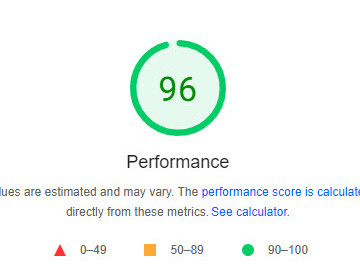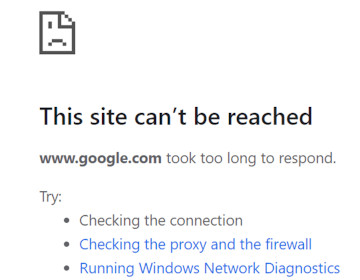A Slow Website Deters Customers, Damages Their User Experience & Can Lead to Decline of Your Business
-
July, 2023
-
Website Optimisation
-
Team Seriously

Intro
In today's fast-paced digital world, a slow website can be the kiss of death for businesses. With consumers demanding instant access to information and seamless online experiences, any delays or frustrations caused by slow page load times can drive potential customers away. This article delves into five key areas related to page load times, page speed optimization, and poor web hosting resources, highlighting how they can fatally impact businesses by hindering website performance and affecting crucial features like checkout purchases.
First Impressions Matter:
The first few seconds of a user's interaction with a website are crucial. Studies have shown that users form initial impressions within milliseconds, and if a website takes too long to load, it can significantly impact their perception of the business. Slow loading times can create a negative impression, making users more likely to abandon the site and seek alternatives. This can result in lost sales and damage the overall brand reputation.
User Experience and Engagement:
Page load times directly impact user experience and engagement. Slow websites frustrate users, leading to higher bounce rates and decreased time spent on the site. When visitors encounter delays, they are more likely to navigate away, reducing the opportunity for businesses to communicate their value proposition effectively. Additionally, slow-loading pages can hinder interactive features, such as image galleries or videos, diminishing the overall user experience and limiting customer engagement.
Impact on Search Engine Rankings:
Website speed is a crucial factor considered by search engines when determining search rankings. Search engine algorithms prioritize user experience, and slow-loading sites are penalized with lower rankings. This makes it harder for potential customers to find your business, resulting in decreased organic traffic and missed opportunities. By optimizing page load times and improving website speed, businesses can enhance their chances of reaching the top of search engine results, increasing visibility and attracting more visitors.
Conversion Rates and Checkout Abandonment:
Slow websites have a direct impact on conversion rates, particularly during the checkout process. Lengthy loading times frustrate potential customers and erode their trust in the website's reliability. When users encounter delays at critical moments, such as during the payment process, they may abandon their purchase altogether. A study by Akamai Technologies found that a one-second delay in page load time can result in a 7% decrease in conversion rates. By optimizing page load speeds and streamlining the checkout process, businesses can minimize cart abandonment and maximize conversions.
Mobile Responsiveness and User Retention:
In an era dominated by mobile devices, the performance of websites on smartphones and tablets is paramount. Mobile users expect seamless browsing experiences, and slow-loading sites can deter them from engaging with a business. A study by Google found that 53% of mobile users abandon a website if it takes longer than three seconds to load. Furthermore, slow-loading mobile pages can negatively impact SEO rankings, as search engines prioritize mobile-friendly sites. Businesses must prioritize mobile responsiveness and ensure their websites load quickly across all devices to retain and engage mobile users effectively.
Conclusion:
In the digital age, website performance is crucial to the success of any business. Slow websites can have a devastating impact on businesses, leading to lost customers, decreased conversions, and diminished brand reputation. By focusing on areas such as page load times, speed optimization, and quality web hosting resources, businesses can provide seamless user experiences, increase customer engagement, and boost their overall online presence. Prioritizing website speed is not just a technical matter; it is a strategic decision that can be the difference between thriving and succumbing to the competition in today's fast-paced digital landscape.



